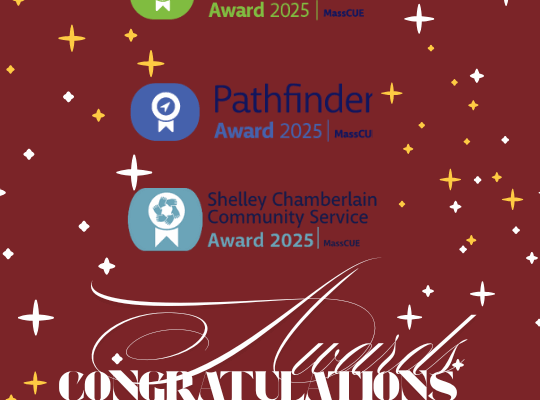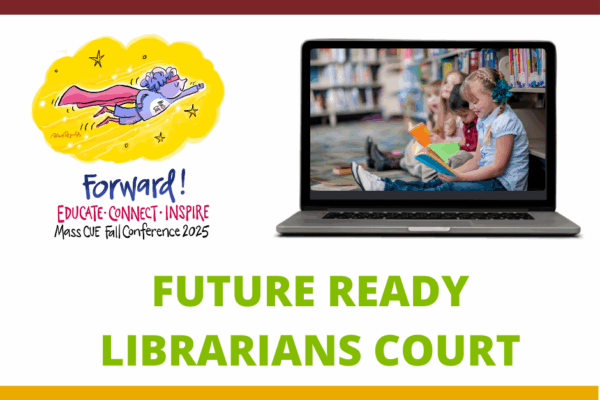 The MassCUE Classroom Grant I received has changed my classroom in ways that I could not have imagined. From the physical space of the room, to student learning and engagement, and even my own teaching style—it has all been transformed by this technology grant. The funds were used to purchase Chromebooks which allowed me to replace 20+ year-old textbooks and open up a whole new world of learning for the students. There were some challenges along the way, but with struggle comes growth and this grant opened the door for plenty of student and teacher growth to occur.
The MassCUE Classroom Grant I received has changed my classroom in ways that I could not have imagined. From the physical space of the room, to student learning and engagement, and even my own teaching style—it has all been transformed by this technology grant. The funds were used to purchase Chromebooks which allowed me to replace 20+ year-old textbooks and open up a whole new world of learning for the students. There were some challenges along the way, but with struggle comes growth and this grant opened the door for plenty of student and teacher growth to occur.
Change of Teaching Style
The primary lesson for which I submitted the grant is called “Slavery in the North: The Untold Story.” The idea for this unit came from a National Endowment of the Humanities Summer Institute on the same topic. I was able to use many of the electronic resources from the Institute, and combine that with general Internet sources to complete this project. Our school has limited electronic resources available to students, so having the new Chromebooks in my class enabled me to change my own teaching style and challenge the status quo. As a history teacher, I am used to giving students a research topic and having them perform the research to produce some kind of essay or project that is pre-determined by yours truly. With this unit, however, I changed things up a bit. With the Chromebooks, we were able to spend days exploring all kinds of electronic resources surrounding the advent of slavery in the American colonies, have class discussions and debates, and dive deep into the topic. Students were then charged with the task of developing their own question or topic to research, which they were able to do with the Chromebooks. Once the topic was developed, students were allowed to choose the mode through which they would present their findings. I was able to help guide students who felt “stuck” or unsure of where to direct their curiosities, but for the most part this was all student-driven.
Student Ownership
This new method was different from the standpoints of both my teaching practice and the students’ learning practice. From the students’ point of view, they were able to take more ownership of their learning because they came up with their own questions based on the documents we viewed and discussions we had. This student-driven method naturally made them more curious about the questions and motivated them to find out as much as they possibly could. The students had not been given this much academic freedom before, so they were unfamiliar with the idea of directing their own inquiries and developing their own research topics. However, the students were not the only ones who found struggles in this change of pace. From my teaching standpoint, I had to learn how to take a step back and allow students the freedom to explore on their own. Instead of simply guiding them through the process, I found myself constantly looking over their shoulders to see if they were exploring the “right” things or developing “good” research topics. Once I realized what I was doing, I had to literally step back and trust my students to be their own guides on this journey. I never realized before this how much I actually micromanage the students’ learning. This was eye opening for me, and it actually took some time for me to be comfortable with just giving the students a road map to their destination, as opposed to giving them turn-by-turn directions.
Student Engagement at Its Best
The results were superb. Student engagement was noticeably higher, they enjoyed the assignment more, and their academic achievement was, on average, greater than they had produced in similar assessments prior to this. Once I was able to step back from the micromanaging role and let the students take control, I found that I enjoyed it more and experienced less stress as well. Although this is far from being a new and novel method of teaching and learning, it is new to me. I plan on sharing with my colleagues and incorporating this method into my curriculum much more in the future. The students benefit more, I benefit more, and everybody wins!
Kris Jeffers is a Social Studies teacher in the Whitman-Hanson Regional School District. kristopher.jeffers@whrsd.org
 Print this post
Print this post



